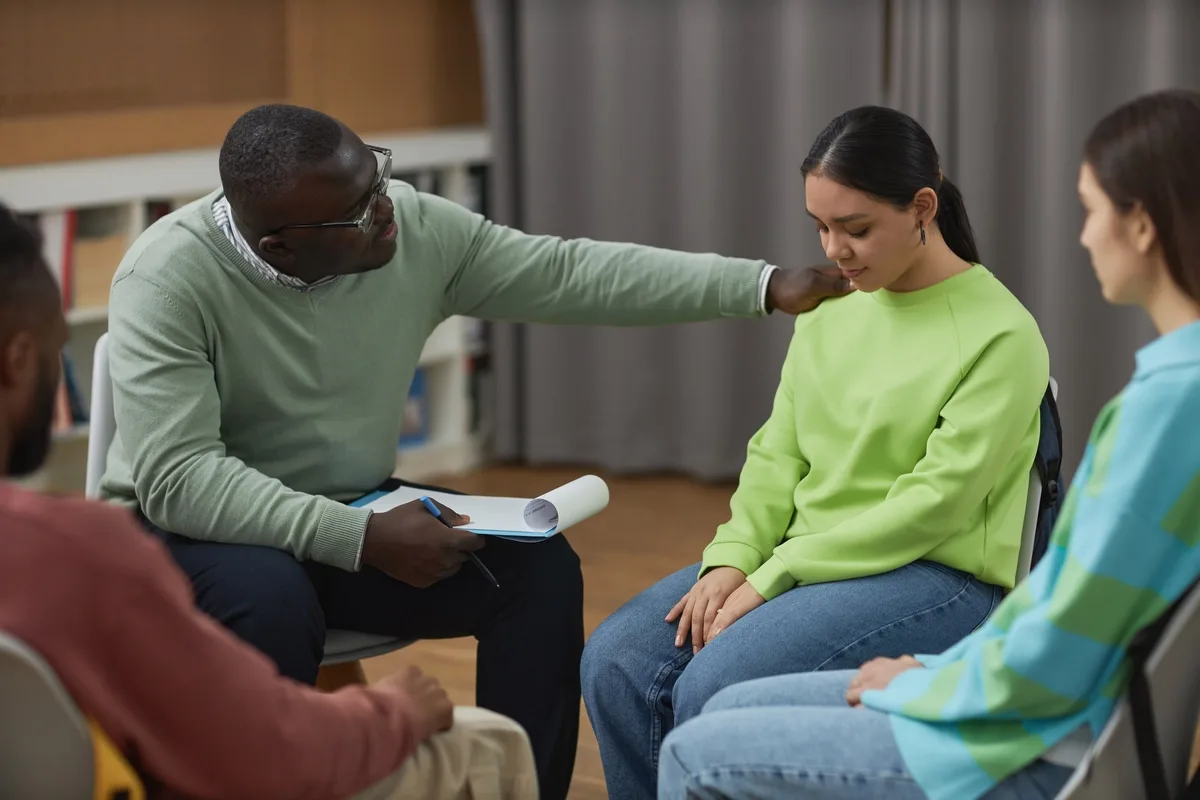24/7 Helpline:
(866) 899-221924/7 Helpline:
(866) 899-2219
Learn more about PTSD Rehab centers in Howard County
PTSD Rehab in Other Counties

Other Insurance Options

Choice Care Network

Access to Recovery (ATR) Voucher

BlueCross
Beacon

Health Choice

United Health Care

Cigna

AllWell

Health Net

Evernorth

Regence

Multiplan

MVP Healthcare

Lucent

Carleon

PHCS Network

Holman Group

Health Partners

Highmark

WellCare Health Plans

JAEL Health Services
JAEL Health Services is a private rehab located in Ellicott City, Maryland. JAEL Health Services spe...




















































































































































































































Counseling Resources
Counseling Resources is a private rehab located in Ellicott City, Maryland. Counseling Resources spe...

Yudaguru Integrative Wellness
Yudaguru Integrative Wellness is a counseling center located in Ellicott City, Maryland. Lead by Abh...

















































































































